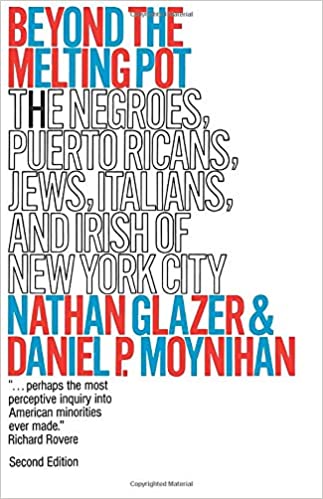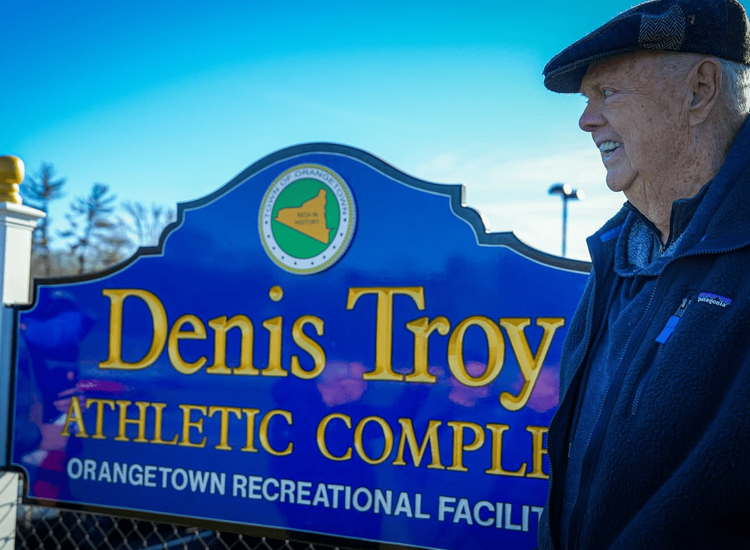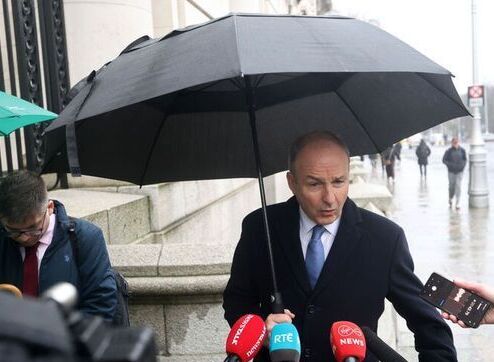Sixty-five summers ago, in August 1956, two Irish immigrants living in South Buffalo got married. To be precise, my paternal aunt, Philomena (“Phil”) Butler, from Culleens, Co. Sligo, wed Joe Whelan of Dungarvan, Co. Waterford. After a decade of marriage, which included the arrival of seven children (Garvan, Mickey, Deirdre, Sheila, Colin, Kevin and Siobhan), Phil and Joe decided to move their ever-growing family back to Dungarvan (where two more children, Aileen and Karena, were later born).
As neighbors and friends came and went from the house on Oakridge Avenue to say goodbye in April 1966, one kind old Kerryman named Jack Courtney gave each of the eldest Whelan boys a dollar to buy ice cream. He also had kind words of advice, assuring the boys not to be too sad, as they’d make many new friends in Ireland.
These fond recollections were shared recently on a family group chat that is typically devoted to discussing the perennially hope-raising/hope-crushing causes of Waterford hurling and Buffalo Bills football. Neither of these teams has won the ultimate championship of their league since the Whelans lived in Buffalo: Waterford having captured an All-Ireland title in 1959 and the Bills having won back-to-back AFL championships in 1964 and ‘65. In the decades since, both teams have often come heartbreakingly close—Waterford losing in the finals in 2008, 2017 and 2020, and the Bills being the only team to lose four consecutive Super Bowls following the 1990, 1991, 1992 and 1993 seasons.

A dejected Jamie Barron and Shane McNulty left the field after Waterford lost the All Ireland hurling final against Limerick at Croke Park on Dec. 13, 2020. INPHO/RYAN BYRNE
Sligo sports are never discussed on this group chat because a Sligo team has never played in All-Ireland final in football or hurling, and as such they have been so consistently hopeless they have been too bad to inspire heartbreak. Mayo football, on the other hand, as Echo readers well know, is the most heartbreakingly hopeless cause—the cursed Mayo men having lost in the finals in 1989, 1996, 1997, 2004, 2006, 2012, 2013, 2016, 2017, 2020 and of course 2021—and Mayo football often merits a mention among my family, being that another of my paternal aunts, Winnie Butler, married Hughie Campbell of Ballycroy, Co. Mayo, and raised her four children (Siobhan, Bridget, Tricia and Tommy) alongside a whole clan of Campbells and Howards on Dick Road in Depew, a town just a few miles outside Buffalo’s city limits.
In the last few weeks, the topic of conversation often turned away from sports as it became increasingly clear that one of Buffalo’s own, namely Jack Courtney’s grand-daughter Kathy Hochul, would replace the disgraced Andrew Cuomo and become the next Governor of New York. Many times in the last year and a half, President Biden has recited Seamus Heaney’s line about when “once in a lifetime/ The longed-for tidal wave/ Of justice can rise up/ And hope and history rhyme” and surely, there is something especially hopeful, and quintessentially American, in the history of family that can go from humble working-class immigrant roots to the highest office in the state in just two generations.
Besides inspiring hope in the American dream, the governorship of Hochul, in tandem with the presidency of Biden, might inspire a strong sense of nostalgic hope for a return to the kind of Irish-Catholic political power that has been on the wane in the Democratic Party in recent decades and that received much attention during the previous presidential administration, when the emergence of so-called “alt-Irish Americans” in the Trump/Fox News orbit inspired articles in publications such as The Irish Independent, the New Republic and Buzzfeed News.
But decades before the rise of Trump, the decline of Irish-Catholic Democratic political power was analyzed brilliantly and presciently in a book first published in the middle of Phil and Joe Whelan’s married life in Buffalo, namely Daniel Patrick Moynihan’s 1963 classic “Beyond the Melting Pot: The Negroes, Puerto Ricans, Jews, Italians, and Irish of New York City.” Moynihan identified suburbanization, demographic pressures from other ethnic groups, upward economic mobility and the leftward drift of the Democratic party as all having contributed to the disintegration of an Irish-Catholic Democrat identity, an identity that Moynihan quipped had once upon a time “took on the mystery of the Trinity itself; the three were one and the one three.” Concluding his chapter on the American Irish, Moynihan wrote these elegiac lines: “It was the last hurrah. He [JFK], the youngest and newest, served in a final moment of ascendancy. On the day he died, the President of the United States, the Speaker of the House of Representatives, the Majority Leader of the United States Senate, the Chairman of the National Committee were all Irish, all Catholic, all Democrats. It will not come again.”

A few weeks after President Kennedy’s assassination, Moynihan also made the oft-quoted observation: “I don’t think there’s any point in being Irish if you don’t know that the world is going to break your heart eventually.” A kind of paraphrase of Moynihan’s Irish fatalism, or perhaps just a similarly learned sentiment, was stitched into the fabric of the complimentary tote bag I received upon registering for the 2009 International James Joyce Conference hosted by the University of Buffalo; designed by a local artist, the logo on the bag read: Buffalo—City of No Illusions.
In a moment of executive transition it is only natural to hope that new, more competent, more just, more ethical leadership will inspire confidence and civic engagement among the body politic and improve the material well-being of the citizenry. And for many of us, when the new leader is a fellow Irish American, be it a Democrat or a Republican, perhaps that hope is even greater than normal. But as the headlines appear each day about President Biden’s successes and failures in regard to military withdrawals and civilian evacuations and vaccine mandates and infrastructure bills, we are reminded yet again of one of the best lines uttered by Mario Cuomo, the now disgraced governor’s father: “You campaign in poetry; you govern in prose.”
And perhaps Irish Americans in particular, or at least Irish Americans with connections in South Buffalo or Waterford or Mayo or Sligo know in their bones that the often ugly prose of governance is just one proof of the truth mentioned by Heaney in the beginning of his now even more famous passage of poetry: “History says/ Don’t hope on this side of the grave.” In other words, many Irish and Irish Americans who wish Governor Hochul great success, still know better than to harbor unrealistic illusions about politics. Or sports. Or life in general.
Just the latest example in a summer full of them: on a recent Sunday, the Bills blew a fourth quarter lead and lost their first game of the new NFL season.
Stephen Butler, Ph.D, is Senior Lecturer, Expository Writing Program, New York University.









